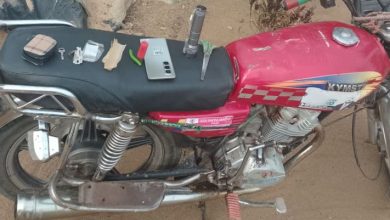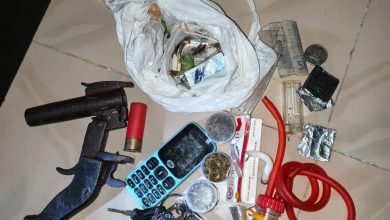Electricity Consumers Lament In Akwa Ibom, Score PHED Low
Gov Emmanuel Worried Over Epileptic Power Supply

Years after Nigeria‘s power sector was privatised, Akwa Ibom residents are groaning under the weight of perceived outrageous bills and poor power supply from the firm, Port Harcourt Electricity Distribution Company (PHED).
With the exception of few highbrow estates in Uyo, the state capital, residents have since added lack of electricity to their long list of worries. But they still cough out hard earned money to pay electricity bills at the end of every month.
The consensus belief is that Akwa Ibom State which owns an independent power plant that is generating over 150 megawatts of power and contributing upto 115 to the national grid, the state should have no business with blackout and crazy bills by PHED.
The plight of Mr. Anietie Udoma, a landlord in Akwa Efak axis of Uyo, the state capital, underscores the cringing woes faced by electricity consumers.With his fury so glaring, Mr. Udoma, a bricklayer by profession, pleaded rather rhetorically with our correspondent to “ask PHED how Akwa Ibom people have offended them.” Udoma said Akwa Efak Street is one of the areas in the state where the electricity distributors still adhere to estimated billings in contrast to guidelines given by the Nigerian Electricity Regulatory Commission (NERC) that prepaid meters be used.
He said he placed an order for the meter since 2018 but is yet to receive it. “Look at this house (a four-bedroom bungalow), does it worth being billed over N18,000 monthly? He asked rhetorically.
For Miss Lynda Ukonne, a Law student of the University of Uyo, her plight is equally appalling. She was mandated by her co-tenants to serve as the middleman between them and PHED. Narrating her ordeal to our reporter, a visibly sad Miss Ukonne said she is now an object of ridicule to her co-tenants.
Flipping through documents to back up her claims, she said the sum of N70,000 was paid to PHED through her on January 10, 2019 to clear outstanding debts.
According to her, an employee of PHEDC named Godwin and an unnamed female member of staff received the payment. She later discovered that the sum of N50,000 was retained by the duo while N20,000 was paid into the company’s account.
After spending months complaining to the company’s management, Ukonne said she was directed to pay the sum of N13,000 to a member of staff named Uzoma for “reconciliation.”
Sadly too, the said Uzoma only paid N5000 into the company’s account out of the N13,000. After days of pestering, Uzoma reportedly refunded N8,000 according to Ukonne.
Ukonne said the company recently issued a bill amounting to a whopping N228,000 to her compound.
She said the matter is currently on the desk of the CMD of the Uyo branch of PHED, whose name was given as Dickson.
For Charles Essiet Essiet, a graduate of Fine and Applied Arts, he is tired of paying for electricity which he scarcely enjoys.
“I reside in Oron Road by Crunchies Plus (an eatery in Uyo). I have since told my landlord to disconnect my room. ‘I better pass my neighbour’ (a portable generator) is doing me well. In a compound of about 20 tenants, each person pays N2000 per month, but we hardly have electricity. In the few days that there is electricity, the voltage is usually low. Please help me publicise my artworks, leave this PHED, abi NEPA matter”, Essiet told our correspondent.
When contacted via their customer care number, 070022557433, a representative of the head office of PHEDC in Port Harcourt, Rivers State, denied knowledge of alleged outrageous billings in Akwa Ibom.
On non-issuance of prepaid meters to consumers, the agent, who declined mentioning her name, told our correspondent to inform consumers to sort out the matter at “the Uyo office because that is where they made their payment.”
A visit to the Uyo office of the company on Wednesday by our correspondent yielded no result as the head of station was not on seat. None of the staff met agreed to comment on the matter.
Protests Galore
In recent times, consumers across the state have protested against perceived over-estimated bills and poor output from PHED.
In the five local government areas of Oron, Mbo, Udung Uko, Urue Offong/ Oruko and Okobo which make up Oro nation, their relationship with PHED is appalling.
Months back, thousands of youths, led by president, Oron Union Youth Wing, Comrade Chris Ante; and the president, Essu Nlap Oro, Ulap Great Edemumoh, protested against what they described as “the exploitative tendencies of the Port Harcourt Electricity Distribution Company (PHED) which charges them exorbitant tariffs for non-supply of electricity.”
Chris Ante who spoke on behalf of the protesting youths decried that they have “had several roundtable discussions with the management of PHED. They asked us to give them three months so they can fix the light. But we have regretted that dialogue because everything has become worse.”
He further lamented that “they keep exploiting us with estimated billing. We are tired of their extortion. We are ready to stay in darkness and we will look for alternative ways of generating electricity for ourselves.”
They even issued a quit notice to the company.
“The management of PHED should relocate their staff from Oron. We no more want their business to operate here. We are saying good bye to NEPA and PHED and there is no going back”, Ante ordered.
For Itu LGA which has a power plant in its locality, residents have been at perennial loggerheads with the power distributor.
Operating under the aegis of Youth Development Forum, a non-governmental organization, whose national president is Mr Ubong Akpan, the youths said the protest was “to let the PHED know that their operation in Itu is working against us.”
“We don’t want such services again. In Itu, we have two major transmission stations – Ikot Nya Itam and Afaha Ube Itam – that feed almost the entire state, and it’s we the host community that suffer environmental hazard, yet we rarely have light”, they decried through their national president.
PHED Defends Its Operations
On the Itu protest, PHED returned fire by blaming the youths.
Mr. John Onyi, manager, Corporate Communications, PHED, said the youths’ decision to barricade its offices constitutes why there is power failure in the state.
“The action of the youth has therefore, led to inability of the Transmission Company of Nigeria (TCN) to wheel out power to Port Harcourt Electricity Distribution Company for onward distribution to its valued customers in Akwa Ibom State.
“Also, the economic activities of the entire state have been brought to a halt as a result of the sacking of TCN’s officials on duty by the irate youths”, Onyi alleged.
NERC’s ‘Failure’
The Nigerian Electricity Regulatory Commission (NERC) is empowered by the Electric Power Sector Reform (EPSR) Act, 2005 “to ensure an efficiently managed electricity supply industry that meets the yearnings of Nigerians for stable, adequate and safe electricity supply.”
The Act, among other powers, mandates the commission to ensure that “all new electricity connections must be done strictly based on metering before connection.”
The Act also states as follow: “All customers have a right to a properly installed and functional meter”, “All customers have a right to be properly informed and educated on the electricity service”, and “All customers have a right to transparent electricity billing.”
Given the litany of woes experienced by consumers in the state and the perceived carefree attitude of PHED, consumers interviewed by our correspondent said NERC has not been able to live up to its legally backed mandate.
Mr. John Elijah, publisher of Newsweek Newspaper, said NERC should establish a cordial relationship with electricity consumers and carry out oversight functions on PHED.
His words: “Many people are not aware that the NERC is in existence. Corrupt practices in the power sector must be eradicated, and NERC has a huge role to play on this. To me, I feel that NERC has failed.”
Also speaking, Mr. Ubong Marcus, an ICT expert whose office is along Udobot Street in Uyo, said he was not aware of the existence of NERC.
A security personnel who pleaded anonymity described the NERC as a “twin brother to PHED.” “Both are not impactful”, he said.
Governor Reacts
Akwa Ibom State governor, Mr. Udom Emmanuel, in a recent media briefing stated clearly that his administration is equally not satisfied with the operations of PHED, and that the state is considering the establishment of its own electricity transmission company.
His words: “We are going to check how to do our transmission and we are going to set up our own transmission company. I pay a lot of money generating power, we have enough electricity but PHED just decides not to give us light. When I ask, they tell me a lot of people in the villages are not paying for electricity. What about the assets I provide? I have not even been given credit for that; I invest so much and I get so little. The only way to solve that is to get our own transmission company and get ourselves out of PHED. We are working seriously on that.”
Governor Emmanuel mentioned that his administration has invested in the power sector by building two power sub-stations and providing other electricity facilities.
-Report Supported by Policy Alert




